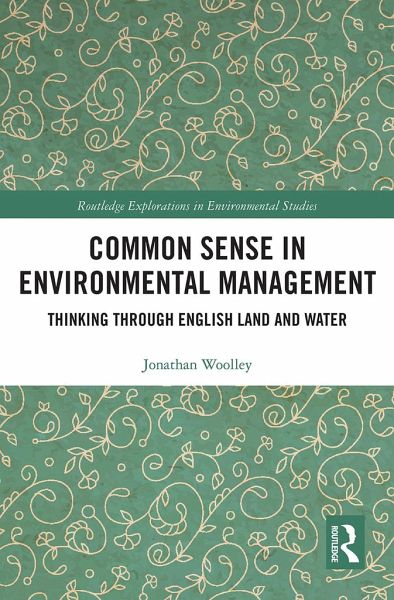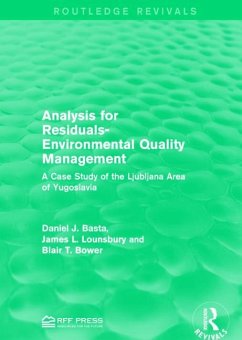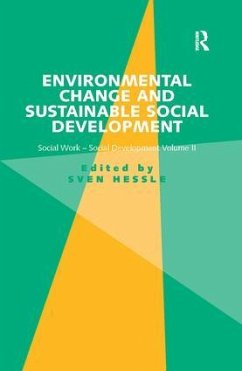
Common Sense in Environmental Management
Thinking Through English Land and Water
Versandkostenfrei!
Versandfertig in 1-2 Wochen
55,99 €
inkl. MwSt.
Weitere Ausgaben:

PAYBACK Punkte
28 °P sammeln!
Common Sense in Environmental Management¿examines common sense not in theory, but in practice. Jonathan Woolley argues that common sense as a concept is rooted in English experiences of landscape and land management and examines it ethnographically - unveiling common sense as key to understanding how British nature and public life are transforming in the present day. Common sense encourages English people to tacitly assume that the management of land and other resources should organically converge on a consensus that yields self-evident, practical results. Furthermore, the English then tend t...
Common Sense in Environmental Management¿examines common sense not in theory, but in practice. Jonathan Woolley argues that common sense as a concept is rooted in English experiences of landscape and land management and examines it ethnographically - unveiling common sense as key to understanding how British nature and public life are transforming in the present day. Common sense encourages English people to tacitly assume that the management of land and other resources should organically converge on a consensus that yields self-evident, practical results. Furthermore, the English then tend to assume that their own position reflects that consensus. Other stakeholders are not seen as having legitimate but distinct expertise and interests - but are rather viewed as being stupid and/or immoral, for ignoring self-evident, pragmatic truths. Compromise is therefore less likely, and land management practices become entrenched and resistant to innovation and improvement. Through a detailed ethnographic study of the Norfolk Broads, this book explores how environmental policy and land management in rural areas could be more effective if a truly common sense was restored in the way we manage our shared environment. Using academic and lay deployments of common sense as a route into the political economy of rural environments, this book will be of great interest to scholars and students of socio-cultural anthropology, sociology, human geography, cultural studies, social history, and the environmental humanities.














